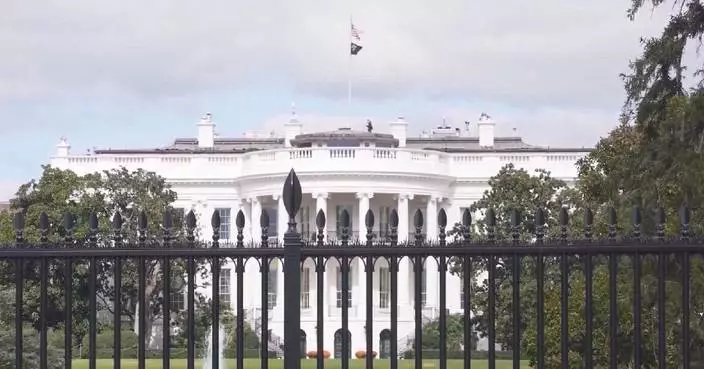People should treat new world records with an “inclusive and non-biased attitude”, and the best way to fight back against unfair questions is to keep yourself clean and achieve better results, said Chinese swimming gold medalist Pan Zhanle.
China’s swimming team returned home from Paris 2024 Olympic Games on August 6 with an impressive medals haul, including Pan who won two gold medals, one silver medal and broke a world record during the event.
The 48-second mark in the 100-meter freestyle had long been a threshold for Asian athletes. At the 2022 Budapest Swimming World Championships, Pan clocked a 47.65 seconds in the 100-meter freestyle semi-finals, becoming the second Chinese swimmer to break the mark in this event. Since then, his performance has been rising.
The Paris 2024 was Pan Zhanle’s first Olympics and, prior to his arrival in the pool, a Japanese swimmer had been the only Asian athlete to win the men's 100-meter freestyle competition.
Pan said in an interview with China Media Group (CMG) that he will not be constrained by any bias or judgments and will continue to strive for better results.
"So maybe everyone is stuck by this judgment, including the Japanese, whose national record is now 47.85 seconds. They may think the goal of getting under 48 seconds is a bit too high, as if it is sacred. But for me, it is not that out of touch, I just regard it as a small step in my life," Pan said.
Pan’s time of 46.40 seconds in the Paris finals, more than a full second ahead of his nearest rival, set a new world record but also raised questions among some commentators.
"We certainly all hope that we will not be biased, that people focus simply on breaking records or achieving better results. We also hope that there will be more people breaking the world record. That will be more interesting," Pan said.
The Chinese swimming team, among the most anti-doping tested ahead of the Paris Olympics, has undergone rigorous scrutiny. According to World Aquatics, swimming's global governing body, Chinese swimmers were tested for banned substances on average 21 times from January 1 to the start of the Games. By comparison, Australian and American swimmers were tested only four and six times on average, respectively.
The WADA has also reviewed the Chinese athletes' case and found no evidence to dispute a previous contamination scenario related to the Chinese team.
"I am innocent. Regarding my doping tests, I have tested negative more than 50 times last year and from May to July this year. What we eat and drink are all controlled, with strict screening, so there is no drug use or misuse. To break the prejudice, the first thing is to be myself and keep myself clean. The second is to use the results to effectively fight back against them," Pan said.

Strong results best way to counter bias, unfair questions: Chinese swimmer Pan Zhanle

Strong results best way to counter bias, unfair questions: Chinese swimmer Pan Zhanle





















































